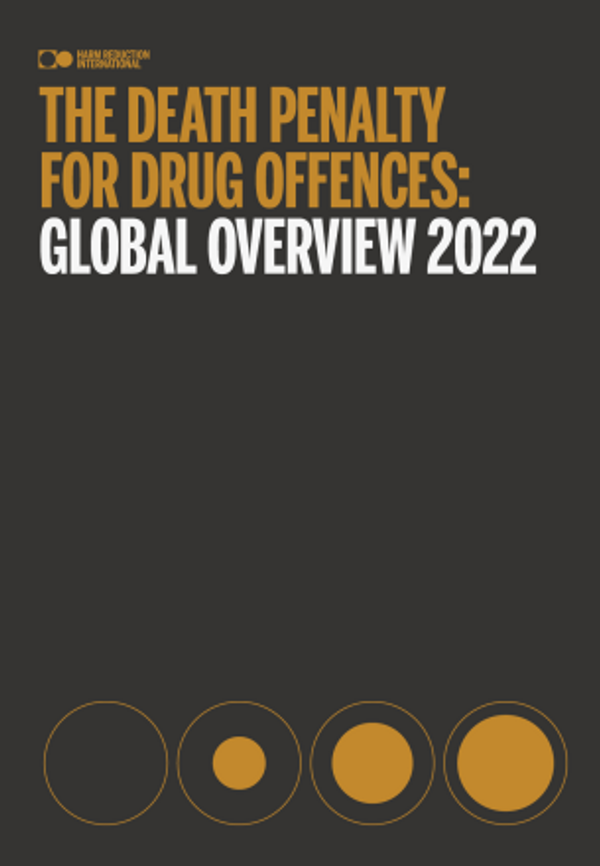The death penalty for drug offences: Global overview 2022
Harm Reduction International has monitored the use of the death penalty for drug offences worldwide since their first ground-breaking publication on this issue in 2007. This report, their twelfth on the subject, continues their work of providing regular updates on legislative, policy and practical developments related to the use of capital punishment for drug offences, a practice which is a clear violation of international standards.
The Global Overview 2021 revealed that 2021 had ended as a year of mixed progress. On one side, the number of countries executing people for drug crimes had reached a decade-low, owing mostly to a halt in drug-related executions in Saudi Arabia and, to some extent, the COVID-19 pandemic. On the other side, a significant increase in confirmed executions had been recorded, largely attributable to a surge in Iran. In the course of 2022, the situation sharply deteriorated.
As of December 2022, Harm Reduction International (HRI) recorded at least 285 executions for drug offences globally during the year, a 118% increase from 2021, and an 850% increase from 2020. Executions for drug offences are confirmed or assumed to have taken place in six countries: Iran, Saudi Arabia, Singapore, plus in China, North Korea and Vietnam – on which exact figures cannot be provided because of extreme opacity.
This regression was met with robust resistance, as 2022 also featured strong activism from civil society and victims’ families. In Singapore, a wave of protests kicked off – one that has rarely been seen in the country due to extreme limitations on assemblies and routine intimidation of activists.
In the context of these regressive trends, institutional actors and fellow states have failed to adequately respond. The death penalty for drug offences received some attention in intergovernmental fora throughout 2022 (including within a UN Secretary General’s report to the Human Rights Council). Some executions were met with statements of condemnation from various actors, including the Office of the High Commissioner for Human Rights, the European Union, and other diplomatic missions. But, these responses were largely ad-hoc and symbolic, and widely insufficient.
While more countries abolished the death penalty in 2022, the use of capital punishment for drug offences is going in a markedly different direction, impinging on the likelihood of achieving global abolition.
These figures are a call to action to all actors involved in the fight for abolition, but primarily to governments and to intergovernmental actors: to acknowledge the barrier that punitive drug policies represent for the global fight towards abolition, and to identify and pursue new, influential strategies to promote the respect of international standards on the death penalty.
